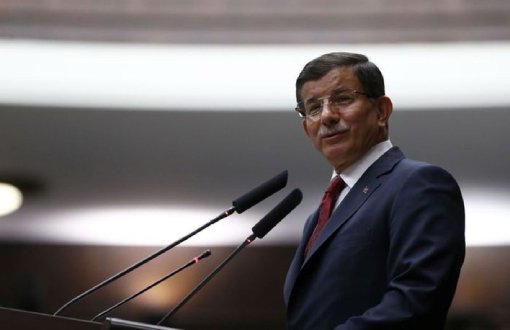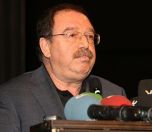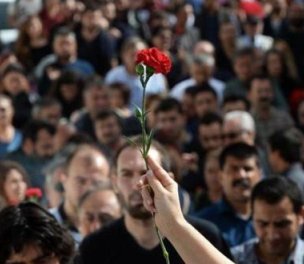Click to read the article in Turkish
Former Minister of Foreign Affairs and Prime Minister from the ruling Justice and Development Party (AKP) Ahmet Davutoğlu said, "If the past is raked up about counter-terrorism, several people cannot go out in public. When the history of the Republic of Turkey is written one day, one of the most critical periods will be the one between June 7 and November 1."
This statement of Davutoğlu referring back to the year 2015, namely the Resolution Process initiated for the Kurdish question and its aftermath, has stirred public reactions and discussions.
June 7, November 1 elections, Resolution process
Davutoğlu, who spoke about the period of June 7 and November 1, 2015, was the Prime Minister who led the country to Parliamentary elections.
Coming into office as the Prime Minister from the AKP on July 16, 2014, shortly after the "Resolution Process" was officially started, Davutoğlu was the Prime Minister of Turkey between August 28, 2014 and May 24, 2016.
Unable to come to power alone in June 7 elections unlike previous periods, the AKP re-held the elections on November 1, 2015. In this period, the attack against two police officers in Ceylanpınar, Urfa on July 22 ended the Resolution process. Shortly before the elections on June 7, a bomb exploded at the Diyarbakır rally of Peoples' Democratic Party (HDP) on June 5.
The 5-month period between June 7, when the AKP could not come to power alone, and November 1, 2015 saw two bomb attacks, cross-border operations, detentions and arrests across Turkey, curfews in eastern and southeastern provinces and deaths of civilians, soldiers and police officers.
What happened between these two elections affected the election results. Receiving 49 percent of votes, the AKP once again came to power alone.
A brief timeline of June 7 - November 1 period
Turkey experienced the following incidents between June 7 and November 1:
July 11: Kurdistan Communities Union (KCK) ended the ceasefire.
July 17: President and AKP Chair Recep Tayyip Erdoğan announced that he did not recognize the Dolmabahçe Agreement on the Resolution process.
July 20: A suicide bomb attack was launched by the ISIS in Ceylanpınar in Turkey's southeastern province of Urfa, claiming the lives of 33 people.
July 22: Two police officers were killed in Ceylanpınar in Urfa while they were sleeping at home.
July 23: ISIS opened fire on Kilis from Syria, which claimed the life of one soldier. One police officer was killed by the PKK in Diyarbakır.
July 24: The jets of Turkish Armed Forces (TAF) bombed ISIS targets and PKK camps in Qandil in northern Iraq. The Police also launched an operation against the ISIS, PKK and Revolutionary People's Liberation Party-Front (DHKP-C) throughout Turkey.
August 11: Erdoğan announced that the Resolution process was ended.
August 20: Four soldiers were killed in Lice in Diyarbakır. The day after, eight soldiers died after explosives planted on the road exploded in Siirt.
August 22: In an attack against a military guard post in Şırnak, Lieutenant Ali Alkan lost his life. Lieutenant Colonel Mehmet Alkan, the big brother of the deceased soldier, harshly criticized the war policies of the government.
September 5: Curfew was declared in Cizre, Şırnak. Almost 20 civilians lost their lives in the district as a result of ensuing conflicts.
September 6: 16 soldiers lost their lives in a PKK attack in Dağlıca, Hakkari.
September 8-9: An attack was launched against police officers at the Customs Gate in Iğdır. 13 officers lost their lives in the attack.
October 10: Two separate bombs exploded at the Labor, Democracy and Peace Rally in the capital city of Ankara, claiming the lives of 102 people and wounding several others.
October 20: Speaking at AKP rally in Turkey's eastern province of Van, Davutoğlu threatened the Kurdish voters by saying, "If the AKP is removed from power, terrorist gangs will roam around here." (HA/SD)






